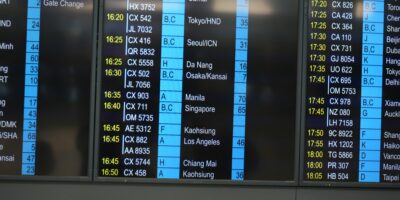New Hampshire Airports: A Real Traveler’s Guide
Flying in and out of New Hampshire has gotten complicated with all the airline changes flying around. I’ve been routing through this state for years — mostly ski trips and a few summer lake weekends — and the airport situation here is actually better than most people expect. There’s more going on than just Manchester. Let me walk you through what’s actually available and what it’s like on the ground.
Manchester-Boston Regional Airport (MHT)
This is the big one. Manchester-Boston Regional is the largest airport in the state, sitting right in Manchester, New Hampshire’s biggest city. It’s about 50 miles north of Boston, and honestly, that’s one of its best selling points. If you’re anywhere in northern New England and dreading the drive into Logan, MHT is your shortcut. American, Southwest, and Delta all fly out of here, and they handle a solid number of passengers every year.
I started using MHT instead of Logan about six years ago, and I haven’t looked back. The parking situation alone is worth it. You can actually find a spot without circling a garage for 20 minutes. Security lines are short — I’m talking 10 to 15 minutes on a bad day. And the airport consistently ranks high for customer satisfaction, which tracks with my experience.
Getting there is easy. It’s right off Interstate 293 and the Everett Turnpike, so you can reach it from a wide swath of New England without much trouble. Inside, there’s food, shops, rental car counters — all the standard stuff. Business travelers will appreciate that there are meeting rooms available. And if you’re flying in for outdoor recreation, you’re a short drive from hiking trails, ski resorts, and some beautiful lakes. Probably should have led with this — for a lot of people, MHT is the gateway to New Hampshire’s outdoors, and that context changes how you think about the airport entirely.
Portsmouth International Airport at Pease (PSM)
Pease is a different animal. It’s near Portsmouth, which is one of my favorite small cities in New England — great restaurants, historic waterfront, lively arts scene. The airport itself is small and handles limited commercial service, mostly through Allegiant Air. So you’re looking at budget-friendly flights to specific destinations rather than a full route network.
Here’s what I like about it: the size. You park, you walk in, you’re at your gate. There’s no maze of terminals to navigate. No shuttle buses between concourses. It’s refreshingly simple. The facility shares space with the Pease Air National Guard Base, which adds a layer of civic importance to the whole operation.
General aviation is where Pease really earns its keep. Private and charter flights use it regularly to access New Hampshire’s Seacoast region. That brings visitors to the nearby shopping outlets, historic sites, and ocean beaches. I’ve met folks at local restaurants who specifically flew private into Pease to spend a weekend on the coast. It supports the local economy in ways that aren’t immediately obvious.
Lebanon Municipal Airport (LEB)
Lebanon sits in the western part of the state, close to the Vermont border. It’s small — really small — but it fills a gap that would otherwise leave the Upper Valley region pretty isolated from the air travel network. Cape Air runs commercial service connecting to Boston and White Plains, NY.
The Dartmouth College connection is the big story here. Students, faculty, visiting lecturers, conference attendees — a lot of traffic through LEB is Dartmouth-related. The airport also handles air taxi services, which matter for executives and professionals in the area who need to move quickly. Local businesses depend on it for time-sensitive shipments too.
There’s a growing freight component that doesn’t get enough attention. The Upper Valley has businesses that need reliable air transport for goods, and LEB provides that. It’s not glamorous, but it’s the kind of infrastructure that keeps a regional economy humming.
General Aviation Airports
Nashua Airport at Boire Field (ASH) is the busiest general aviation airport in New Hampshire. It’s just south of Manchester and handles a surprising volume of non-commercial traffic. Flight schools operate here, private pilots use it regularly, and corporate jets come and go throughout the week.
The FBO services cover fueling, maintenance, and hangar space. I’ve talked to a couple of flight instructors based there, and they genuinely love the field. Good community, decent facilities, and close enough to Boston that corporate clients find it convenient. That proximity to major population centers drives a lot of the activity.
Concord Municipal Airport (CON) is the other notable general aviation field. As the state capital’s airport, it handles charter services, private flying clubs, and government transportation. State officials use it to move between regions, which makes sense when you think about how spread out New Hampshire’s population centers are.
CON also does maintenance and repair work. And it plays a role in supporting tourism and local events. That’s what makes Concord’s airport endearing — it’s not trying to be something it isn’t. It just serves its community reliably and keeps things running.
Development and What’s Changing
New Hampshire’s airports are all in various stages of improvement. Terminal upgrades, runway expansions, safety compliance work — it’s ongoing across the state. There’s a push toward sustainability too. Solar energy and better water management are being explored, which is good to see at the regional airport level where these things sometimes get overlooked.
Public-private partnerships are driving a lot of the economic development around these airports. The idea is that better airports bring in more tourism dollars, which benefits everyone. Employment is another factor — from air traffic control to retail jobs inside terminals, these airports put people to work.
How Airports Drive New Hampshire’s Economy
I think people underestimate how much airports matter to a state like New Hampshire. Tourism is a massive industry here, and airports are how most visitors arrive. Scenic views, historic towns, ski mountains, lakefront getaways — all of that depends on people being able to get here efficiently. Every hotel stay, restaurant meal, and lift ticket purchase traces back, at least partly, to airport accessibility.
Business travel matters too. Companies need reliable air connections to operate in the state. And education — institutions like Dartmouth depend on airport access for global academic exchange, bringing in international students, hosting conferences. That’s real economic impact that ripples through the surrounding communities.
The smaller airports contribute in ways that are easy to miss. They support local aviation businesses, enable emergency services, and connect rural areas to the broader network. Each one, from Manchester down to the smallest general aviation field, plays its part in keeping the state connected and economically active.
Wrapping Up
New Hampshire’s airports punch above their weight. MHT is a genuine alternative to Logan for northern New England travelers. Pease and Lebanon fill specific roles for their regions. And the general aviation fields keep private flying, training, and community aviation alive. If you’re planning travel to or through New Hampshire, you’ve got more options than you probably realized. And most of them are a lot less hectic than what you’d deal with at a major hub.



